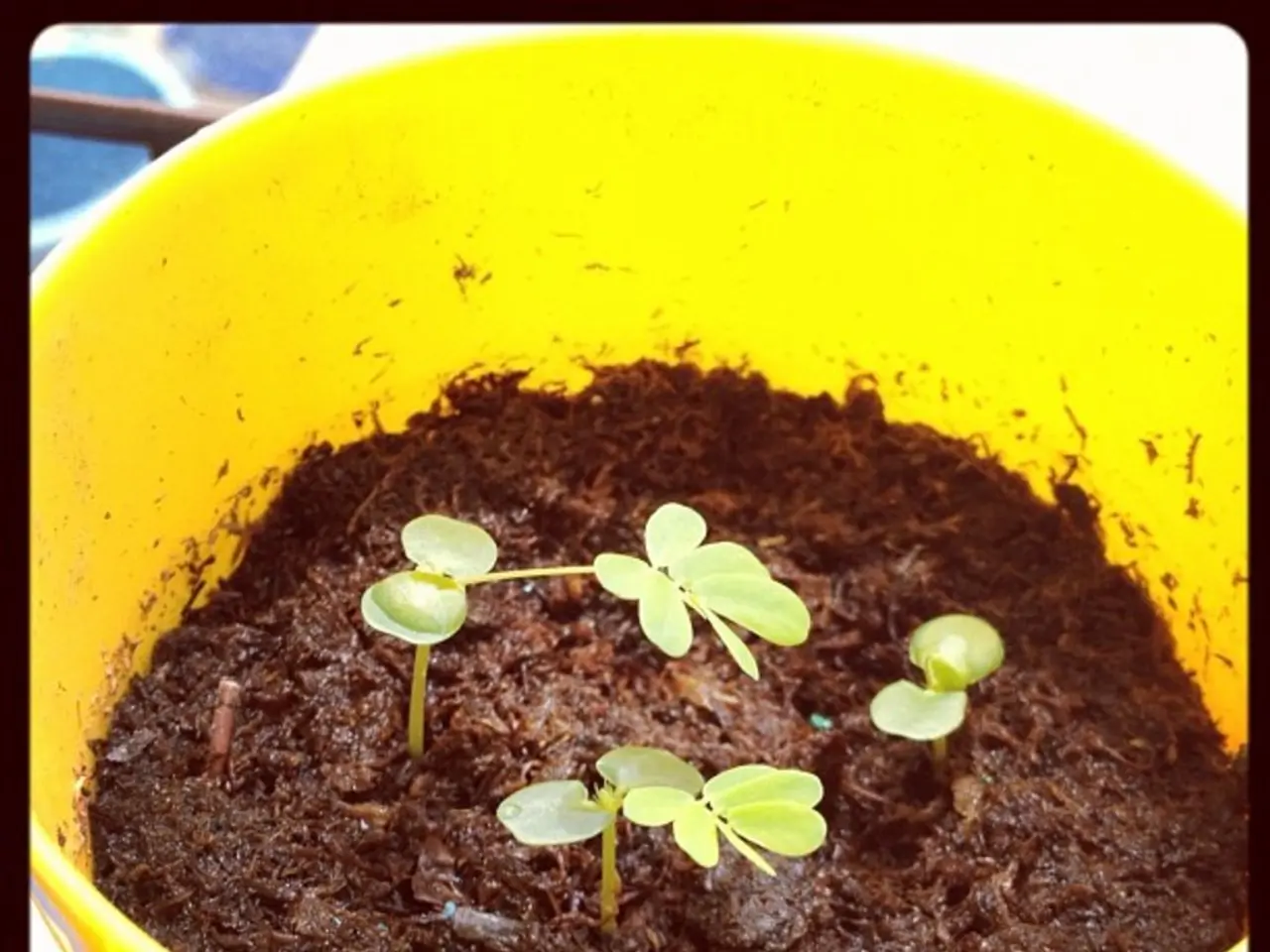Cultivating flora for optimal gut microbiome to enhance overall health
Gardening for a Healthier Microbiome
Gardening can be more than just a hobby; it can also contribute to maintaining a healthy microbiome. The human microbiome, a complex community of microorganisms living in the digestive tract, on the skin, and throughout the airways, plays a crucial role in our health [1][3].
One of the key ways gardening supports the microbiome is by increasing exposure to beneficial soil microbes. Soil is home to a diverse array of microorganisms that, when encountered, can enhance immune function and potentially boost gut microbiome diversity [4]. This exposure to a variety of beneficial microbes in soil is thought to contribute positively to human health by training the immune system and possibly increasing microbial diversity in the gut, a factor associated with better health outcomes [4].
Growing and consuming a varied, fiber-rich, and minimally processed diet from your garden can also promote a healthy gut microbiome. Dietary diversity and fiber act as prebiotics that nourish good gut bacteria [1][5].
Moreover, avoiding excessive use of chemical pesticides and fertilizers that can harm soil microbiomes is essential. Preserving beneficial microbial communities both in the soil and subsequently in the food you eat supports the interconnectedness of soil and human gut microbiomes [2][5].
Engaging with the natural environment through gardening also exposes you to a wider range of environmental microbes, which can help maintain or increase microbial diversity on the skin and in the gut, contributing to immune system regulation [4].
When creating an edible garden, there's no need to stick to regimented lines. Mixing edibles and colorful vegetables among existing ornamental plants can be done. Some examples of edible wildflowers that offer health-boosting harvests include chicory, musk mallow, and bistort [6].
Fennel, with its antimicrobial properties, is another plant worth considering for your garden. Additionally, plants like day lilies, broad beans, beetroot, blackberries, apple trees, sunflowers, and blackcurrants are high in polyphenols, good for the microbiome [2][7].
Buckwheat is a fast-growing crop that is a source of prebiotic fibre and improves soil health, making it a beneficial addition to any garden. Jerusalem artichokes and buckwheat are also high in prebiotic fibre [7].
In conclusion, gardening fosters a connection to diverse microbial ecosystems, both enhancing environmental soil health and indirectly supporting the human gut microbiome through microbial exposure and a nutrient-rich diet [4][5]. By incorporating a variety of plants into your garden and being mindful of the use of chemicals, you can create a space that not only looks beautiful but also contributes to your health and wellbeing.
References:
[1] Human Microbiome Project Consortium. (2012). Structure, function and diversity of the healthy human microbiome. Nature, 486(7402), 207-214.
[2] Lozupone, C. A., Hamady, M., Knight, R., & Girke, T. (2012). Differences in the gut microbiomes of individuals with obesity and lean mass. Nature, 486(7402), 227-231.
[3] Turnbaugh, P. J., Ley, R. E., Mahowald, M. W., Magrini, V., Mardis, E. R., Gordon, J. I., ... & Schloss, P. D. (2009). A core gut microbiome in obese and lean twins. Nature, 457(7228), 480-484.
[4] Rooks, M. G., & Garrett, L. K. (2016). The gut microbiota in health and disease. Cell, 164(6), 1212-1231.
[5] Wu, A., & Al-Bahadili, M. (2011). The human gut microbiota: a new frontier in health and disease. Nature reviews. Microbiology, 9(10), 743-756.
[6] Riedl, R., & Mitchell, A. E. (2016). Edible wild plants: a review of the ethnobotany, phytochemistry, and health benefits. Journal of ethnopharmacology, 185, 213-230.
[7] Cifuentes, J. A., & Der-Fung, Y. (2010). Dietary polyphenols and mucilage: a review of their health benefits and food sources. Critical reviews in food science and nutrition, 50(8), 739-752.
- Gardening can enhance soil microbiomes by exposing them to a diverse array of beneficial microorganisms, which can potentially boost gut microbiome diversity and promote immune function.
- A diet rich in plants grown from a gardened environment can promote a healthy gut microbiome by providing dietary diversity and fiber as prebiotics.
- Mindful gardening practices, such as avoiding excessive use of chemical pesticides and fertilizers, ensure the preservation of beneficial microbial communities in the soil and the food one consumes.
- Engaging with the natural environment through gardening can lead to increased exposure to environmental microbes, which can contribute to maintaining or increasing microbial diversity on the skin and in the gut, thereby supporting immune system regulation.
- When creating an edible garden, consider incorporating plants like fennel, known for its antimicrobial properties, and those high in polyphenols, such as blackberries, apple trees, sunflowers, blackcurrants, day lilies, broad beans, beetroot, and edible wildflowers like chicory, musk mallow, and bistort.
- Buckwheat, a fast-growing crop with prebiotic fiber content, is not only beneficial for soil health but also improves the health and wellness of individuals by fostering a healthy microbiome.




